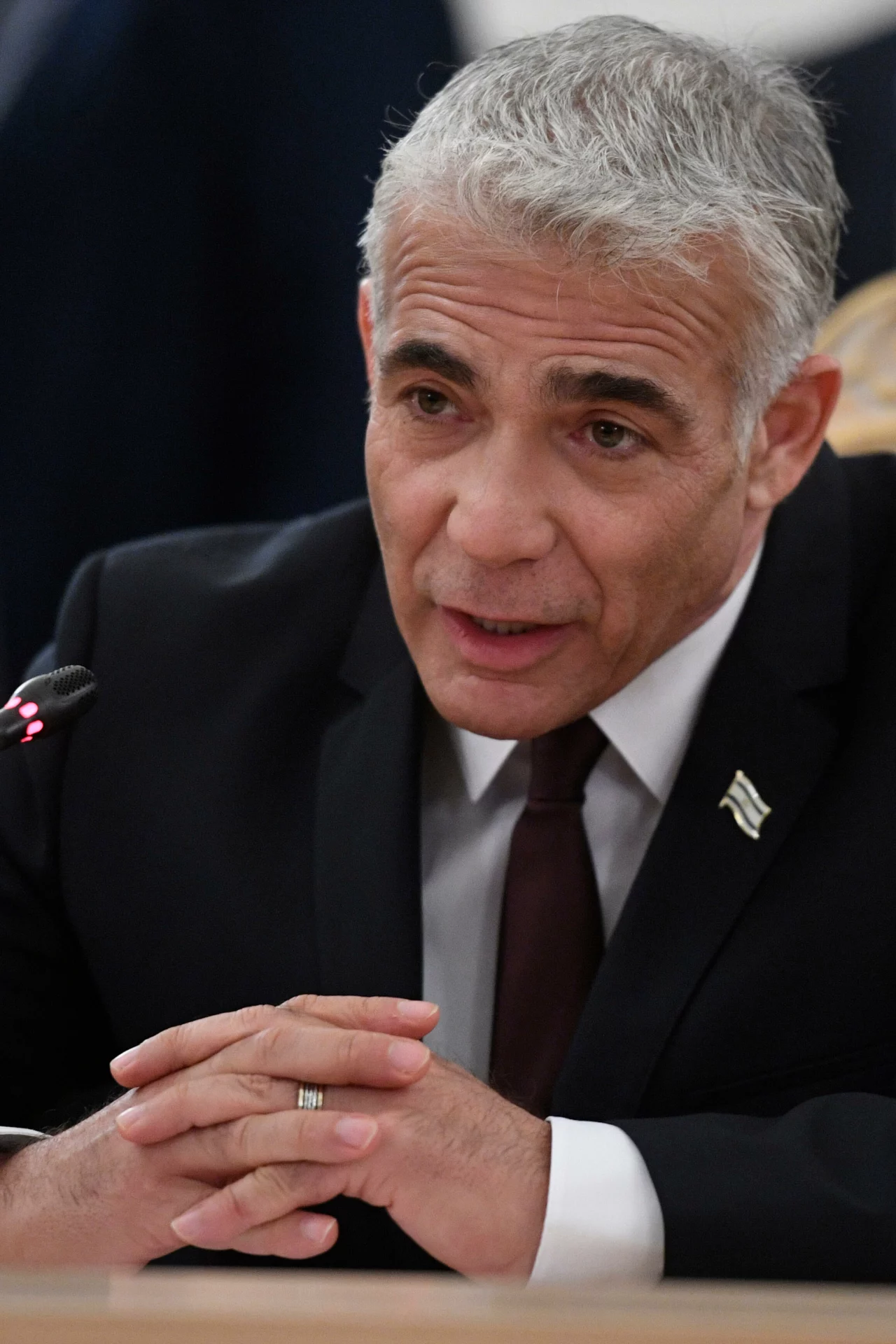Israel’s Foreign Minister Yair Lapid began a landmark visit Thursday to Bahrain where he will open the Israeli embassy one year after the US-brokered normalization of ties.
The Israeli top diplomat touched down at Manama airport, where a Gulf Air plane was due to take off for the first commercial flight between the two countries shortly afterwards.
Lapid is making Israel’s first bilateral ministerial visit to Bahrain, part of a thaw in regional relations after the United Arab Emirates, Morocco and Sudan also established ties last year under agreements known as the Abraham Accords.
However, anger simmers in some quarters over the move, which broke with decades of Arab consensus that there would be no relations with Israel while the Palestinian question remains unresolved.
Protesters burned tires on the outskirts of Manama early Thursday, sending clouds of black smoke into the air, and the hashtag #BahrainRejectsZionists in Arabic was circulating on social media.
Extra security was stationed on the route to the airport and no Israeli flags were visible on main roads. Opposition activists have called for further protests later on Thursday.
Memorandums of understanding on technology and the economy will be signed during Lapid’s visit, along with agreements involving Israel’s national water company and Sheba hospital, Israeli officials said.
The Arab countries involved in the Abraham Accords have stressed the economic benefits of ties with Israel, with half a billion dollars in trade already reported with the UAE.
The UAE, Bahrain and Morocco became the first Arab states in decades to normalize relations with Israel last year, following negotiations spearheaded by former US president Donald Trump.
The Jewish state had earlier reached peace treaties with neighboring Egypt and Jordan.
On the first anniversary of the Abraham Accords this month, US Secretary of State Antony Blinken pledged to continue the efforts of the Trump government.
“This administration will continue to build on the successful efforts of the last administration to keep normalization marching forward,” Blinken said.
“We will encourage more countries to follow the lead of the Emirates, Bahrain and Morocco. We want to widen the circle of peaceful diplomacy,” Blinken said.
Beyond economics, the rapprochement was also pushed by mutual concern over Iran, with the regional rivalry even pushing Saudi Arabia into quietly building relations with the Jewish state.
Lapid is the main architect of the Israeli coalition government that ousted ex-premier Benjamin Netanyahu, who signed the Abraham Accords. He has visited UAE and Morocco since becoming foreign minister in June.








